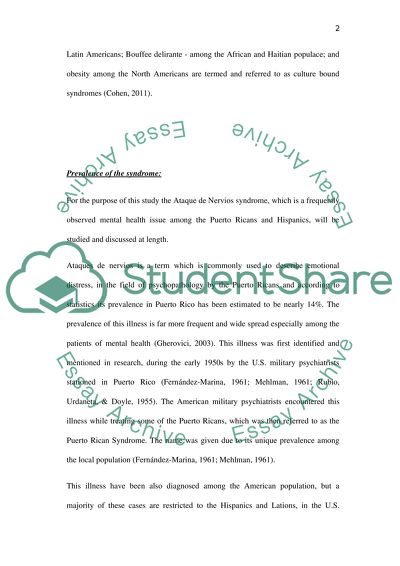Cite this document
(“Culture Bound Syndrome Research Paper Example | Topics and Well Written Essays - 1250 words”, n.d.)
Retrieved from https://studentshare.org/psychology/1448318-culture-bound-syndrome
Retrieved from https://studentshare.org/psychology/1448318-culture-bound-syndrome
(Culture Bound Syndrome Research Paper Example | Topics and Well Written Essays - 1250 Words)
https://studentshare.org/psychology/1448318-culture-bound-syndrome.
https://studentshare.org/psychology/1448318-culture-bound-syndrome.
“Culture Bound Syndrome Research Paper Example | Topics and Well Written Essays - 1250 Words”, n.d. https://studentshare.org/psychology/1448318-culture-bound-syndrome.


